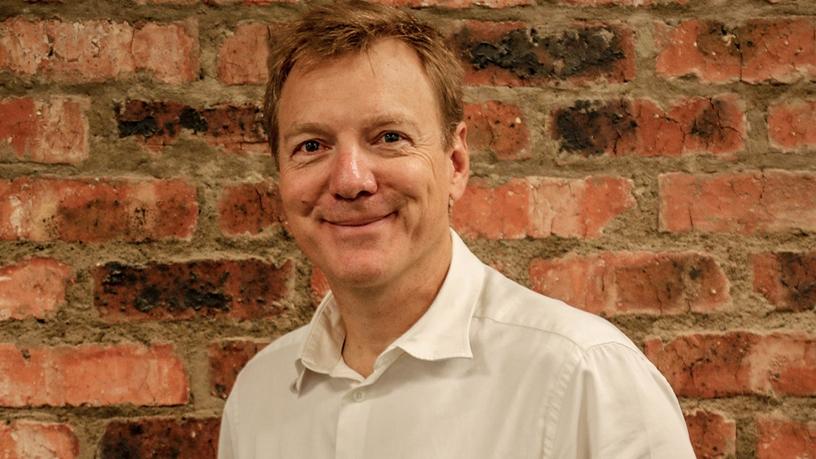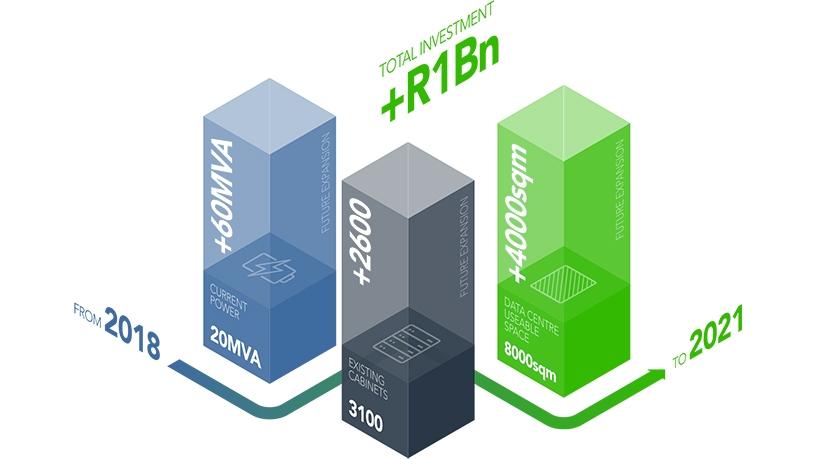
Local enterprise organisations are increasingly moving to the cloud and needing additional data centre capacity.
So much so that it has led local data centre provider Teraco to invest a further R1 billion in expanding its Isando Campus in Gauteng, to create Africa's largest mega data centre.
According to Teraco CFO Jan Hnizdo, when completed, the expanded Isando data centre will become a mega data centre, just by virtue of power.
The first phase will add 20MW of power to the site, followed by 40MW in phase two, which will bring the total power to 80MW.
Phase one is expected to be completed by Q3 next year, and construction for the second phase will likely start in 2020 and take two to three years to complete.
The Isando Campus will be four times bigger than the recently completed Teraco Riverfields Campus, which was previously hailed as Africa's largest data centre but will now be superseded.
Hnizdo says Riverfields is differentiated from Isando because it is a hyperscale facility, which means it offers bespoke halls for single customers. Pre-booking for new space in Isando has already opened, and he says there is such demand that by the time it is launched it will be pretty much full already.
Mark Walker, IDC's associate VP for Sub-Saharan Africa, says: "[There are] huge increases in the need for storage and management of data based on rapidly increasing use of cloud-based platforms, with public cloud services growing around 19% CAGR [compound annual growth rate] over the next five years, and over 20% year-on-year at present.
"Furthermore, artificial intelligence is growing at a five-year CAGR of over 40%: a nascent market, hence rapid growth off a low base, and the use of algorithm-based big data engines for enterprise decision systems means companies like Teraco are an essential aspect of business now and in the future. Key considerations include the security and reliability of these data centres, as corporates move more and more data into their facilities."
Cloud immediacy

Hnizdo says South African business is catching up with world trends. "Public cloud infrastructure players, like Amazon and Google, are growing at a tremendous rate, but up until now it has been difficult for local enterprise operations to access them because they were too far away.
"To access a data centre in Europe, it takes about 180-milliseconds for a round trip, which is fine for a mom and pop small business, but bigger organisations with large numbers of users and systems demand immediate response.
"The reality is that our large banks and enterprises need to be closer to the data centre so they are able to get rid of the lag.
"Public cloud infrastructure players are starting to see the whole of Sub-Saharan Africa as an addressable market. I believe we will see these large public cloud infrastructure platforms deploy in South Africa, whether they deploy with us or on their own. We don't know how it will unfold but we see them deploying in some shape or form."
Creating meeting space
"Teraco has few direct competitors locally," says Walker. "Indirect competitors include on-premises corporate data centres at mainly financial or governmental institutions, where customer data and enterprise management systems are considered to be sensitive corporate assets subject to GDPR and POPI governance, regulatory and compliance, thus possibly unsuitable for off-site storage and management."
Hnizdo says there are a lot of data centre providers in SA, most of which are owned by the telcos. He says what differentiates Teraco is that it is vendor-neutral.
"A customer that deploys with us doesn't have to buy services from us; they can connect to whoever they want, we just facilitate it, and allow companies to interconnect to each other."
He says when Teraco first launched 10 years ago, it was the only data centre provider that was vendor-neutral and it soon became a middle-of-the-road meeting place for telcos. The company now has over 200 telcos, mostly from Africa, that have nodes in the data centre.
"We became an ecosystem for telcos, and on the back of that came the content providers; they started deploying at Teraco so they could hit all the data providers at once."
Hnizdo says Teraco now has five key verticals in its ecosystem: financial services, telcos, enterprise, content providers and service providers.
"The Teraco platform allows enterprises to have direct private connections to all the leading cloud providers in the most latency-efficient and resilient manner possible. Enterprises can deploy their public, private and hybrid cloud strategies from the Teraco platform, which allows for complete freedom of choice from a cloud provider perspective, as well as significantly reducing the time and cost for enterprises to access these cloud platforms."
He says in SA, the vendor-neutral model is unique but it is well understood in the rest of the world.
In Teraco's four data centres across the country, there are 13 000 interconnects, with 8 000 of those currently in the Isando campus. This compares to mega data centres in the rest of the world, such as in Miami, Amsterdam, London and Hong Kong, which range from 8 000 to 15 000 interconnects.
The firm declined to disclose its client list, but says it hosts all the major telcos and content providers.
"With significant increases in undersea connectivity evidenced over the last 10 years and limited on-continent data centre availability, the market for local data centres is expected to continue growing strongly in the foreseeable future," says Walker.
Share